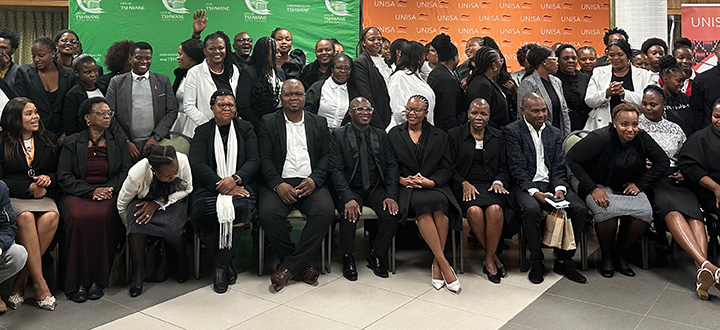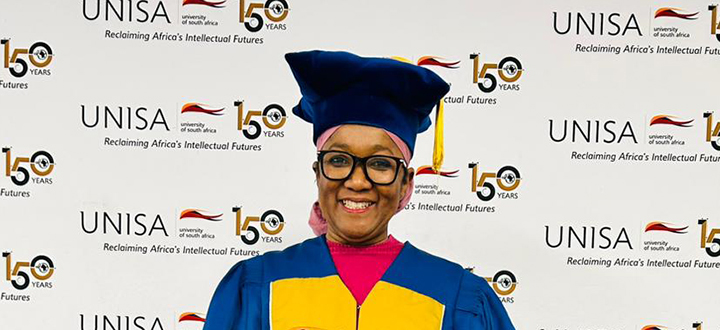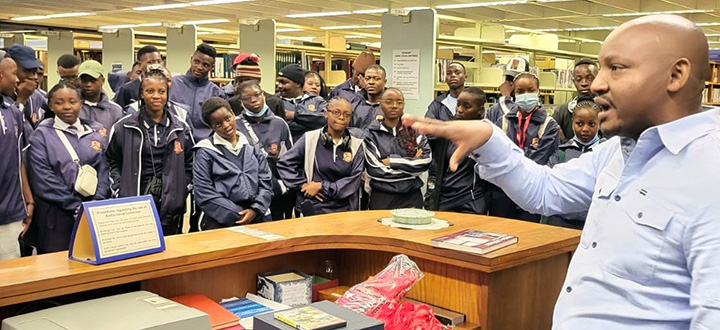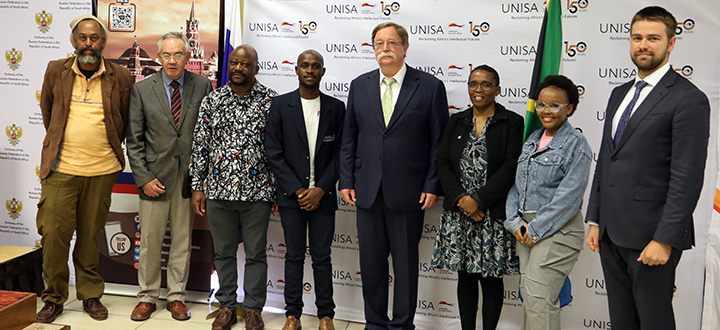Research
SA's shortage of organs for transplant affects thousands
Shortcomings in the law and widespread ignorance about organ donation are contributing to a major shortage of organs for transplant in South Africa. The problem is particularly severe among patients suffering from kidney failure, thousands of whom are turned away from the dialysis units of public hospitals every year.
“Organ and tissue donation is not a priority for government and there is a huge need to spread the message about it in communities,” said Prof Magda Slabbert, an expert in medical law at Unisa’s College of Law, in a presentation on 1 March during the university’s annual Research & Innovation Week.
Only two public hospitals in Gauteng were willing to provide statistics on the situation at their dialysis units, but their experience is illuminating, according to Slabbert.
“They each show away approximately 500 patients a month. That’s 1 000 people who are shown the door per month and who actually go home to die because they cannot dialyse themselves.”
Kidney failure is becoming chronic in South Africa, she said, mainly as a result of the growth in diabetes. Without access to dialysis or a kidney transplant, patients with kidney failure face a bleak future.
Objections not cultural or religious
Slabbert said one of the two biggest reasons for the shortage of organ and tissue for transplant, including skin, bone and tendons, is the lack of knowledge among South Africans about organ donation. “This is not necessarily a cultural or religious issue. Our research has proven that the main obstacle is ignorance, which is then thrown under the carpet of culture. Once you engage and explain how organ donation works, there is much greater acceptance.”
This is why her organ and tissue donation project—part of the College of Law’s flagship community engagement project on Biotechnology and Medical Law—has a strong community engagement component. In June 2016, more than 80 members of a community from Eldorado Park near Soweto signed up as organ donors after an outreach visit to a local church by a joint team from Unisa, the Organ Donor Foundation, Bone SA and the Tshwane University of Technology’s Centre for Tissue Engineering.
Lack of knowledge on organ donation extends to the medical fraternity, as organ donation is not part of doctors’ medical training. Even in the legal profession, knowledge of the law on organ donation is limited, according to Slabbert.
Law fails to respect donors’ rights
In addition to raising awareness about organ donation, there is a clear need to address shortcomings in the legislation on organ donation.
The problem, according to Slabbert, is that the wishes of a person who wants their organs to be donated after death can be overridden by family members. “There is no precedent in South African law to ensure that the rights of donors are respected.”
She says there are three ways that a would-be organ donor can declare their wishes. The first is to state this in your will—a method that Slabbert considers “useless” owing to the length of time it takes for a deceased estate to be sorted out. “With organ donation, time is of the essence.”
The second method is to make a written statement, signed in the presence of two witnesses. “But such a document if treated as a living will has no legal status,” she says.
Third, a would-be donor can express their wishes through an oral statement, also in front of witnesses. “But who is going to check that such a statement was made”?
If none of these written or oral statements are present or known of when a donor dies, the family is asked. “They can veto my decision—even though in my case I have been a passionate advocate of organ donation for 17 years!” Slabbert says.
Yet another obstacle standing in the way of a culture of organ donation is the lack of a centrally controlled database. “There is no national donor waiting list and no nationally controlled donor database. Organ and tissue donation is simply not a government priority.”
*By Clairwyn van der Merwe
Publish date: 2017-03-08 00:00:00.0

 Unisa academics join hands to celebrate World Social Work Day
Unisa academics join hands to celebrate World Social Work Day
 Unisa community engagement initiative targets school underperformance
Unisa community engagement initiative targets school underperformance
 Library tour introduces learners to the wonderful world of Unisa
Library tour introduces learners to the wonderful world of Unisa
 Unisa Radio volunteer wins prestigious community journalism award
Unisa Radio volunteer wins prestigious community journalism award
 Unisa's student leadership engage with Russian ambassador
Unisa's student leadership engage with Russian ambassador